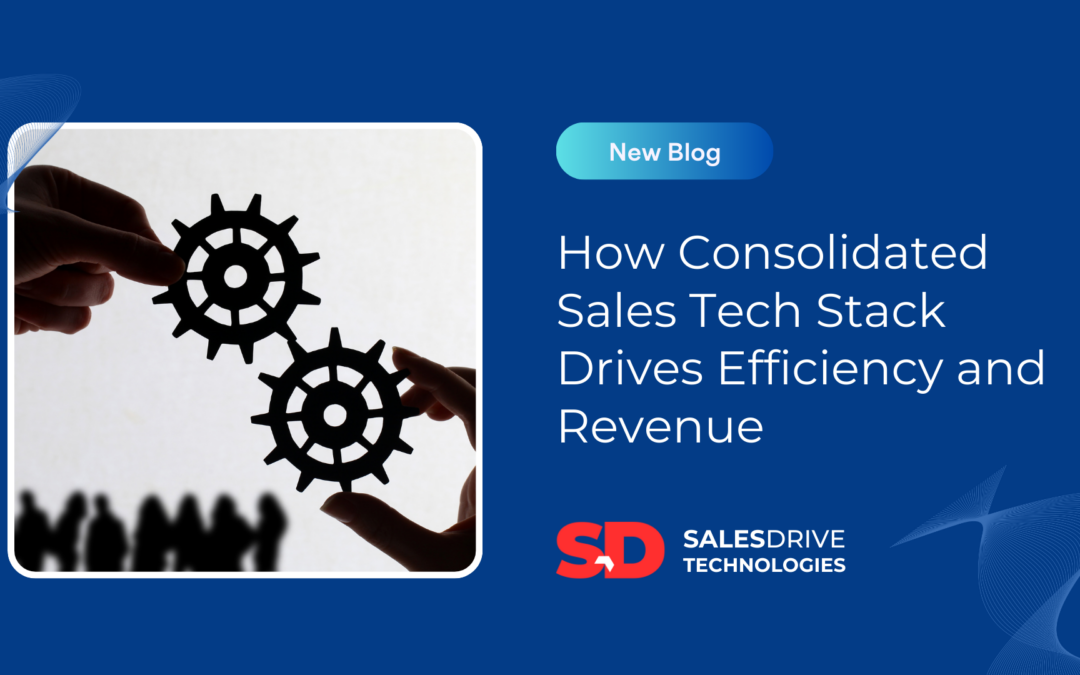Every decision within a company has consequences. Some ripple quietly through the organization, while others hit like a storm, leaving no corner untouched. Incentive plans are no exception. On paper, they promise motivation and results. In practice, the wrong design can ignite behaviors that derail even the strongest companies.
History offers stark reminders of how things can go wrong. Companies have lost millions, faced regulatory backlash, and shattered employee morale—all because of flawed incentive structures. The lesson? An incentive plan is a choice about what a company values and rewards, not just merely a system.
This blog isn’t about placing blame; it’s about learning. We’ll look at real-world cases where misaligned incentive plans caused chaos and highlight the critical lessons they teach us. And because every challenge has a solution, we’ll explore how Salesdrive Technologies, experts in Oracle CX, SPM, and ICM, can help companies build incentive systems that drive results without compromise.
Top Five Cases of Poorly Designed Incentives and Their Root Causes
The following case studies illustrate how poorly designed incentive plans can trigger widespread organizational problems, ranging from unethical practices to catastrophic business failures. These five real-life examples highlight the importance of aligning incentive structures with business goals, ensuring ethical practices, and balancing short-term results with long-term objectives. Here’s a deeper look at the root causes of these failures:
1. Xerox’s Commission Structure: A Case of Misaligned Incentives
What Went Wrong:
Xerox faced lagging sales despite introducing advanced new machines. The company’s commission structure incentivized salespeople to push older, more profitable models over the new ones. This led to a situation where employees prioritized their own financial gain over the company’s strategic goals. The resulting “incentive-caused bias” meant that the employees’ actions were misaligned with the company’s business interests.
Root Cause:
Incentives were not aligned with the organization’s long-term business goals. When designing incentives, it is crucial to ensure that they promote behaviors that benefit both the employees and the organization.
Takeaway Lesson:
To avoid this pitfall, incentive structures should be carefully crafted to promote behaviors that directly align with organizational success, not personal gain that could harm the broader goals.
2. Renowned Scottish Bank: The Danger of Aggressive Sales Targets
What Went Wrong:
A renowned Scottish Bank implemented aggressive sales incentive schemes that created a toxic sales culture. This toxic culture led to irresponsible lending practices and the mis-selling of financial products, contributing to the bank’s near collapse during the financial crisis. The result was a £20 billion government bailout.
Root Cause:
The incentive plans at the bank incentivized risky and unethical behavior, with no checks to prevent harm to customers or the organization. Incentives should encourage ethical practices and protect the company’s long-term stability.
Takeaway Lesson:
Incentive programs must prioritize ethical behavior and customer welfare. Organizations need to ensure that incentive structures do not encourage actions that could jeopardize financial stability or damage reputations.
3. Wells Fargo’s Fake Accounts Scandal: Unethical Incentives Lead to Fraud
What Went Wrong:
Wells Fargo’s aggressive incentive program pressured employees to meet unrealistic sales targets. The result was widespread fraudulent activities, including the creation of unauthorized accounts. This scandal severely damaged the bank’s reputation and led to significant legal penalties.
Root Cause:
Incentives were designed without clear communication of ethical standards, resulting in actions that severely harmed the company’s integrity.
Takeaway Lesson:
Clear and transparent communication of ethical standards is essential. Incentive programs must create a safe environment where employees feel empowered to report unethical behavior without fear of retaliation.
4. Major Automotive Manufacturer: Short-Term Incentives Overlook Long-Term Safety
What Went Wrong:
A major automotive manufacturer’s focus on short-term sales incentives resulted in a culture that prioritized immediate profits over long-term safety and quality improvements. The ignition switch recall crisis highlighted how this focus on performance-based incentives contributed to critical safety issues being ignored.
Root Cause:
The incentive structure encouraged short-term thinking that ultimately undermined the company’s ability to protect consumers and ensure product quality.
Takeaway Lesson:
Effective incentive programs should balance short-term performance with long-term goals. Companies must design incentive plans that encourage sustainable practices rather than focusing solely on immediate results.
5. Sales Incentives in Banking: Risk of Aggressive Selling and Mis-Selling
What Went Wrong:
In the banking sector, poorly structured sales incentives encouraged aggressive selling and the mis-selling of products, such as Payment Protection Insurance (PPI). These actions not only harmed consumers but also led to significant financial losses for banks due to compensation claims.
Root Cause:
Incentive programs in banks were not structured with consumer protection in mind. Incentives that reward aggressive selling at the expense of customer well-being can lead to major reputational and financial risks.
Takeaway Lesson:
Incentive plans must be regularly reviewed to ensure they prioritize customer interests and ethical standards. Failing to do so can lead to significant consumer harm and financial loss.
Key Takeaways from These Case Studies
These case studies demonstrate that poorly designed incentive programs can have far-reaching negative impacts on businesses. The root causes of these failures include:
- Misaligned goals, where incentives focus on personal gain rather than organizational success.
- Unethical behavior driven by aggressive sales targets or unclear ethical guidelines.
- Short-term incentives that overlook long-term sustainability and quality.
- Lack of consumer protection, which leads to harmful selling practices.
How Salesdrive Technologies Can Address Poorly Designed Incentive Plans
After understanding the challenges posed by poorly designed incentive plans, it’s clear that a strategic overhaul is essential for businesses looking to drive sustainable growth and long-term success. Salesdrive Technologies, with its deep expertise in incentive compensation and Oracle CX solutions, is perfectly positioned to help companies navigate these pitfalls and design incentive programs that align with both organizational goals and ethical standards.
- Aligning Incentives with Goals
Ensures that incentive plans directly align with strategic business objectives, promoting both short- and long-term growth.
- Promoting Clarity and Transparency
Defines clear performance metrics and compensation rules, ensuring employees understand expectations and how their compensation is determined.
- Balancing Metrics and Quality
Advocates for a balanced approach that values both sales performance and customer satisfaction, ensuring sustainable results.
- Personalizing Incentives
Creates customized compensation plans based on individual roles and performance, leveraging Oracle ICM to recognize diverse skill sets within a sales team.
- Ensuring Ethical Practices
By providing real-time visibility into performance and compensation metrics, Salesdrive fosters trust and ensures alignment with ethical standards.
- Ongoing Evaluation and Feedback
Offers continuous program evaluation and analytics to optimize incentive plans, ensuring they evolve with the business.
- Technology-Driven Solutions
Streamlines incentive management with Oracle ICM, automating calculations and reducing administrative burdens for accuracy and efficiency.
- Holistic Approach
Aligns incentives across the entire organization, creating a unified culture of collaboration and peak performance.
- Expertise and Insights
Salesdrive’s consultants leverage industry knowledge to design effective, customized incentive plans that drive desired outcomes.
By partnering with Salesdrive, businesses can design ethical, effective, and data-driven incentive programs that drive sales, enhance employee motivation, and ensure long-term success.




